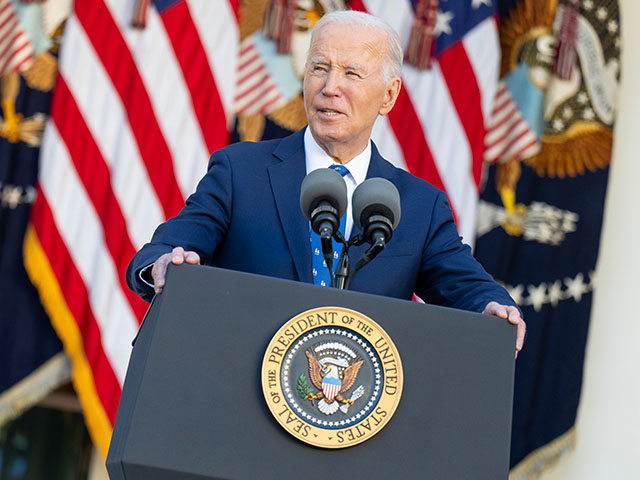The Biden administration on Monday transferred 11 Yemeni prisoners from Guantánamo Bay, Cuba, to Oman, reducing the total number of detainees remaining at Guantanamo to 15. The facility held around 800 detainees at peak population.
The transferred prisoners included Shaqawi al-Hajj, who has been held by the U.S. for 23 years, 21 of them at Guantanamo. He was noted for staging several hunger strikes to protest his imprisonment. Others on the list were Tawfiq al-Bani, who was cleared for transfer in 2010 but remained at Guantánamo, and Khalid Qassim, another hunger striker who complained about inadequate medical care after his refusal to eat in a 2017 op-ed for the UK Guardian.
“The government is claiming that it keeps a close watch on the health of us hunger strikers, but this is nonsense. In the past, the authorities here would weigh the hunger strikers all the time, to ensure we didn’t die on their watch. Now, they are refusing even to do basic medical checks. They last did a blood test on me about seven months ago,” he wrote.
In a Monday article on the prisoner transfers, the Guardian noted that the Yemeni prisoners cleared for transfer years ago remained at Guantánamo because Yemen was “in the grip of a civil war and deemed by the US to be too unstable to rehabilitate such returnees.”
“None of the men in the latest transfer out of the camp had been criminally charged or put on trial during their two decades of detention,” the article added.
The Biden administration was reportedly eager to get as many detainees as possible out of Guantánamo before Donald Trump returns to the Oval Office on January 20 because Trump has said he wants to keep the facility open and “load it up with some bad dudes.”
The Pentagon said on Monday that each of the detainees “underwent a thorough, interagency review by career professionals,” who unanimously decided that transferring them was “consistent with the national security interests of the United States.”
“The United States appreciates the willingness of the Government of Oman and other partners to support ongoing U.S. efforts focused on responsibly reducing the detainee population and ultimately closing the Guantanamo Bay facility,” the Pentagon statement added.
According to the BBC, the transfer was conducted “in the early hours on Monday,” but as of Tuesday, the government of Oman had not acknowledged accepting the prisoners and would not answer questions from the media.
The Associated Press (AP) observed that Oman has taken about 30 prisoners from Guantánamo Bay over the years and most of them have been “released in circumstances unexplained by Oman.”
Two Afghan prisoners taken by Oman returned to their country, which is now ruled by Taliban terrorists, in February. Some Yemenis previously accepted by Oman were returned to Yemen, which is especially troubling because the Houthi terrorists who rule much of the country are currently Iran’s last fully combat-capable terrorist proxy in the Middle East.
Supporters of the prisoner transfer were uncomfortable with the notion of the U.S. holding prisoners for so long without charges or trial, while critics were troubled by the shortage of public details about why the men were sent to Guantánamo in the first place – and the timing of the transfer so soon after a deadly terrorist attack in New Orleans.
Of the remaining 15 detainees at Guantánamo Bay, the Pentagon said “3 are eligible for transfer; 3 are eligible for a Periodic Review Board; 7 are involved in the military commissions process; and 2 detainees have been convicted and sentenced by military commissions.”
